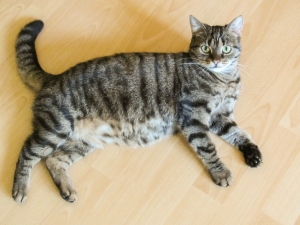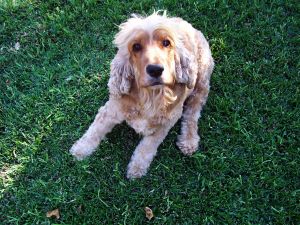 Hyperthyroidism is a common condition that affects many middle-aged and senior cats. And, according to the ASPCA, it’s also the most common glandular disease in felines. It’s caused by an overactive thyroid, and the symptoms typically include weight loss despite an excessive appetite, along with skin issues and vomiting.
Hyperthyroidism is a common condition that affects many middle-aged and senior cats. And, according to the ASPCA, it’s also the most common glandular disease in felines. It’s caused by an overactive thyroid, and the symptoms typically include weight loss despite an excessive appetite, along with skin issues and vomiting.
Regular blood tests can catch this disease before it becomes advanced, thus making it easier to treat. If you notice these symptoms in your cat, don’t hesitate to bring her to the vet as soon as possible for a proper diagnosis. This is especially important because the symptoms are also common in many other feline diseases.
Conventional Treatments
Conventional treatments for hyperthyroidism in cats usually involve either the surgical removal of the thyroid, the administration of prescriptions that will reduce thyroid activity, or the use of radioactive iodine to destroy thyroid tissue.
But the problem is that prescriptions come with side effects and need to be given for the rest of the cat’s life. Surgery may be impossible in the case of older cats or it may lead to postsurgical complications or the need to provide hormone replacements.
And radioactive iodine therapy may work only short-term, according to Dr. Don Hamilton, DVM, who wrote Homeopathic Care for Cats and Dogs. He saw cats who relapsed following this treatment, and others who suffered with burned bladders from excreting radioactive iodine. Other cats became ill and probably suffered from immune system damage as well.
Natural Alternatives
If you feel uneasy about the conventional remedies available for feline hyperthyroidism, there may be alternative treatments you can access from a holistic or homeopathic veterinarian. The key is to look at your individual cat’s entire constitution and symptom picture, though, in order to determine the best course of action. Perhaps conventional treatment is the right way to go, or maybe a completely natural approach would be better, or you might choose to harness the power of both sides to bring your cat back to a state of health.
The Thyroid and Iodine
According to Dr. Hamilton, prevention is very important when it comes to this disease. Chlorine and fluoride in the water supply compete with iodine in the body and adversely affect the thyroid by preventing it from utilizing iodine properly. Therefore, he recommends supplementing with kelp or other seaweed in order to ensure there’s an adequate supply of iodine in your pet’s body to keep the thyroid functioning optimally.
At the same time, though, you need to find the right balance, as a diet high in fish, for example, can contribute to too much iodine in the body and lead to hyperthyroidism. Therefore, holistic vets typically recommend a diet that’s low in iodine, free of seafood, grain and soy free, and rich in high quality animal protein and fats.
Carefully Weigh Your Options
Homeopathic doctors prescribe medicine based on a cat’s diagnosis, symptoms, behavior, and preferences. Working with this type of vet can give you access to remedies that will suit your cat perfectly in order to reduce the symptoms of hyperthyroidism and normalize thyroid function.
Other natural remedies that can be employed include herbs, nutraceuticals, and acupuncture. But the key is catching the disease in its early stages, as this will make all of these options even more effective.






Great information. Thank you. A friend has a cat with hyperthyroidism and this has helped us to understand the alternative ways of treating this. The referenced links were also valuable.
Comments are closed.